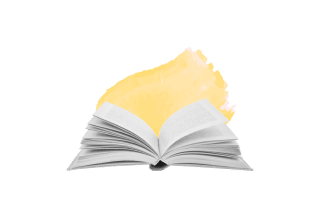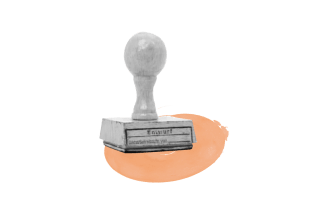Name Directory by Last Name: Last Names Starting with La
Explore millions of names to discover rich genealogical details and uncover your family's history
Enter a name to research
Last name meanings and origins
- Lawrence
The surname Lawrence has its roots in the Latin name "Laurentius," which means "from Laurentum," a town in ancient Italy known for its laurel trees. The name became popular in medieval Europe, particularly in England, where it was introduced by the Normans after the Conquest of 1066.
- Lane
The surname Lane has its historical origins in England, deriving from the Old French word "laine," meaning "a lane" or "a path." It first appeared in the medieval period, particularly in the 13th century, as a topographical surname for individuals who lived near a lane or a narrow road. The name reflects the geographical features of the landscape, indicating that the original bearers likely inhabited areas characterized by such pathways.
- Larson
The surname Larson has its roots in Scandinavia, particularly in Sweden and Denmark, where it is derived from the given name Lars, a variant of Laurence, meaning "laurel" or "crowned with laurel." The name Larson literally translates to "son of Lars," indicating a patronymic origin that was common in Nordic naming traditions. The surname first appeared in written records in the late Middle Ages, with its usage becoming more widespread as surnames became hereditary in the 19th century.
- Lambert
The surname Lambert has its roots in the Old Germanic name "Landberht," which translates to "land" and "bright" or "famous." It first appeared in historical records during the early medieval period, particularly in regions that are now part of modern-day Germany and France. The name became popular among the nobility and was often associated with landowners or those of high social standing.
- Lawson
The surname Lawson has its historical roots in England and Scotland, deriving from the medieval given name "Law," which itself is a diminutive of Lawrence. The name Lawrence comes from the Latin "Laurentius," meaning "from Laurentum," a city in ancient Italy.
- Lang
The surname Lang has its historical roots primarily in the Germanic and Anglo-Saxon regions, with its earliest appearances dating back to the medieval period. The name is derived from the Old High German word "lang," meaning "long" or "tall," which likely referred to a physical characteristic of the original bearers.
- Larsson
The surname Larsson has its roots in Scandinavia, particularly in Sweden, where it originated as a patronymic surname. The name literally means "son of Lars," with "Lars" being a Swedish form of the name Lawrence, which itself derives from the Latin name "Laurentius," meaning "from Laurentum" or "laurelled." The use of patronymics was common in Sweden until the late 19th century, and surnames like Larsson became fixed as families began to adopt them for legal and administrative purposes.
- Lamb
The surname Lamb has its historical roots in England, deriving from the Old English word "lamb," which refers to the young of a sheep. This surname likely originated as a nickname for someone who was gentle or innocent, akin to the characteristics associated with lambs.
- Law
The surname Law has its historical roots primarily in England and Scotland, with its earliest appearances dating back to the medieval period. The name is derived from the Old English word "hlaw," meaning "hill" or "mound," which suggests that it may have originally been a topographic surname for someone living near a hill or a burial mound.
- Lancaster
The surname Lancaster has its historical roots in England, specifically deriving from the city of Lancaster in Lancashire. The name itself is believed to originate from the Old English elements "lanc," meaning "a river," and "ceaster," meaning "a Roman fort or town." The surname first appeared in historical records during the medieval period, with its earliest instances linked to the prominent Lancaster family, who played significant roles in English history, particularly during the Wars of the Roses.
- Laurent
The surname Laurent has its historical roots in France, deriving from the Latin name "Laurentius," which means "from Laurentum," a city in ancient Italy. The name became popular in the early medieval period, particularly in the Christian context, due to the veneration of Saint Lawrence, a martyr who was one of the seven deacons of Rome.
- Lange
The surname Lange has its roots in various European cultures, particularly in Germany and the Netherlands, where it is derived from the Middle High German word "lange," meaning "long." This surname likely originated as a nickname for individuals who were tall or had long limbs, reflecting a physical characteristic that was notable in the community. The earliest records of the surname date back to the medieval period, with instances found in German-speaking regions as early as the 13th century.
- Lake
The surname Lake has its historical origins rooted in the Old English word "lacu," which means "lake" or "stream." It first appeared in England during the medieval period, particularly in regions where bodies of water were prominent features of the landscape. The name likely developed as a topographical surname, denoting individuals who lived near a lake or a stream, reflecting the geographical characteristics of their environment.
- Larsdotter
The surname Larsdotter has its roots in Scandinavian naming traditions, particularly in Sweden, where it is derived from the patronymic system. Historically, the suffix "-dotter" means "daughter of," indicating lineage and familial connections.
- Landry
The surname Landry has its roots in medieval France, deriving from the Old French personal name "Landric," which itself comes from the Germanic elements "land," meaning "land" or "territory," and "ric," meaning "ruler" or "power." The name first appeared in historical records during the 11th century, particularly in regions such as Normandy and Brittany. Over time, the surname became associated with various occupations, often linked to land ownership or governance, reflecting the feudal system of the time.
- Landers
The surname Landers has its historical roots primarily in England and Ireland, with its earliest appearances dating back to the medieval period. The name is believed to derive from the Old English word "land," meaning "land" or "territory," combined with the suffix "-er," which denotes a person associated with a particular place or occupation.
- Lawton
The surname Lawton has its historical roots in England, particularly deriving from the Old English personal name "Lāw," which means "hill" or "mound," combined with the suffix "-ton," meaning "town" or "settlement." This suggests that the name originally referred to someone who lived near a hill or a settlement on a hill. The earliest recorded instances of the surname date back to the medieval period, with variations appearing in different regions.
- Ladd
The surname Ladd has its historical roots primarily in England, with its earliest appearances dating back to the medieval period. The name is believed to derive from the Old English word "ladde," which means "a way" or "a path," suggesting that it may have originally referred to someone who lived near a path or a road.
- Larkin
The surname Larkin has its historical roots in Ireland, deriving from the Gaelic name "O'Leathlobhair," which means "descendant of Leathlobhar." The name Leathlobhar is believed to have originated from a personal name meaning "the half-illustrious" or "the half-bright." The Larkin surname first appeared in historical records in the 12th century, particularly in the province of Leinster. Over time, the name became associated with various occupations, including farming and craftsmanship, reflecting the agrarian lifestyle of many Irish families.
- Lacroix
The surname Lacroix has its historical roots in France, deriving from the Old French word "croix," meaning "cross." This surname likely originated in the medieval period, around the 12th century, when surnames began to be adopted as a means of identification. The name Lacroix is often associated with individuals who lived near a cross or a church, which were common landmarks in rural communities.
- Langlois
The surname Langlois has its roots in France, deriving from the Old French term "langlois," which translates to "the Englishman" or "the one from England." This surname likely emerged during the medieval period, particularly in the 12th century, when the Norman Conquest brought significant English influence to French culture. The name is often associated with individuals who may have had connections to England, either through trade, military service, or migration.
- Latham
The surname Latham has its historical roots in England, particularly in the northern regions, where it is believed to have originated from the Old Norse word "lath," meaning "a barn" or "a farm." The name is thought to have first appeared in the 13th century, with early records indicating its association with various locations named Latham, such as Latham in Lancashire. Over time, the surname became linked to specific occupations, particularly in agriculture and land management, reflecting the agrarian lifestyle of its bearers.
- Larsdatter
The surname Larsdatter has its roots in Scandinavian naming traditions, particularly in Norway and Denmark, where it historically indicated lineage. The suffix "-datter" translates to "daughter of," suggesting that the name was used to denote a female descendant of an individual named Lars.
- Langford
The surname Langford has its historical roots in England, with its earliest appearances dating back to the medieval period. The name is derived from the Old English elements "lang," meaning "long," and "ford," referring to a river crossing.
- Langley
The surname Langley has its historical roots in England, with its earliest appearances dating back to the medieval period. The name is derived from the Old English elements "lang," meaning "long," and "leah," meaning "wood" or "clearing." This suggests that the surname originally referred to someone who lived near a long clearing in a forest or a long stretch of land.
- Larsdr
The surname Larsdr has its historical roots in Scandinavia, particularly in Sweden and Norway, where it is derived from the Old Norse name "Lárus," meaning "laurel" or "victory." The suffix "dr" indicates a patronymic origin, suggesting that the name originally denoted "son of Lars." This naming convention was common in Norse culture, where lineage and familial ties were of great importance. Over time, the surname Larsdr would have been associated with various occupations, often linked to agrarian lifestyles or trades prevalent in rural communities.
- Laird
The surname Laird has its historical roots in Scotland, deriving from the Scots word "laird," which means "landowner" or "lord." This term was used to denote a person of some social standing who owned land, particularly in the Lowland regions of Scotland. The surname likely emerged in the medieval period, around the 12th century, as feudal systems became more established, and land ownership became a significant marker of social status.
- Landis
The surname Landis has its roots in the Germanic and Dutch regions, deriving from the Middle High German word "lant," meaning "land" or "territory." It is believed to have first appeared in the medieval period, particularly in the areas that are now modern-day Germany and the Netherlands. The name likely referred to individuals who were landowners or those who worked the land, reflecting the agrarian society of the time.
- Lavoie
The surname Lavoie has its historical roots in France, particularly in the region of Normandy, where it first appeared in the medieval period. The name is derived from the Old French word "la voie," meaning "the way" or "the path," which likely referred to a geographical feature or a route that was significant to the community.
- Laughlin
The surname Laughlin has its roots in the Gaelic name "O'Lochlainn," which translates to "descendant of Lochlann," a term historically used to refer to Norse settlers from Scandinavia. The name first appeared in Ireland, particularly in the province of Ulster, during the early medieval period.
- Lacy
The surname Lacy has its historical roots in medieval England, deriving from the Old French name "Lacy," which itself is believed to have originated from the Latin "Lacius." The name first appeared in the 12th century, particularly after the Norman Conquest of 1066, when many French names were introduced into England. The Lacy family was associated with the lands of Lacy in Normandy, and the name is often linked to the noble lineage of the Lacy family, who held significant estates in England, particularly in Herefordshire and Shropshire.
- Lacey
The surname Lacey has its historical roots in medieval England, deriving from the Old French name "Lacée," which means "from Lassy," a place in Normandy. The name first appeared in England after the Norman Conquest of 1066, when many Normans settled in England, bringing their surnames with them.
- Land
The surname Land has its historical roots in various European regions, particularly in England and Germany, where it is derived from the Old English word "land," meaning "land" or "ground." This surname likely originated as a topographic name for someone who lived near a specific piece of land or a geographical feature, or it could have been occupational, referring to someone who worked the land. Over time, the surname has been associated with agricultural roles, reflecting the agrarian societies of medieval Europe.
- Layton
The surname Layton has its historical roots in England, with its earliest appearances dating back to the medieval period. The name is derived from the Old English elements "leah," meaning "clearing" or "meadow," and "tun," meaning "enclosure" or "settlement." Thus, Layton can be interpreted to mean "settlement by the meadow" or "farm in the clearing." This surname likely originated as a locational name, referring to individuals who lived near or were associated with a specific geographical feature.
- Langdon
The surname Langdon has its historical roots in England, with its earliest appearances traced back to the medieval period. The name is derived from Old English elements, specifically "lang," meaning long, and "dun," meaning hill or hillock, suggesting a geographical origin related to a long hill.
- Laporte
The surname Laporte has its historical roots in France, deriving from the Old French word "porte," meaning "door" or "gate." This suggests that the name may have originally been a topographic surname for someone who lived near a gate or door, possibly of a fortified town or a significant building. The surname can be traced back to the medieval period, with its earliest appearances recorded in various regions of France.
- Lanier
The surname Lanier has its historical roots in France, deriving from the Old French word "laniere," which means "strap" or "thong." This suggests that the name may have originally been occupational, referring to someone who made or sold leather straps or thongs, possibly for use in various trades. The surname first appeared in historical records in the 13th century, particularly in regions of northern France.
- Lawler
The surname Lawler has its historical roots in Ireland, particularly deriving from the Gaelic name "O'Leathlobhair," which translates to "descendant of Leathlobhar." The name Leathlobhar is believed to mean "the half-illustrious" or "the half-heroic," suggesting a lineage that may have had noble or significant connections. The Lawlers were primarily associated with the province of Leinster, particularly in counties like Kilkenny and Wexford.
- Lathrop
The surname Lathrop has its historical roots in England, specifically deriving from the Old English elements "laet" meaning "to lead" and "hrop" which refers to a "river" or "stream." The name is believed to have originated in the medieval period, with early records indicating its presence in the 13th century. Lathrop was likely associated with individuals who lived near a river or stream, suggesting a geographical connection to water bodies.
- Laroche
The surname Laroche has its historical roots in France, deriving from the Old French word "roche," meaning "rock" or "stone." This surname likely originated as a topographical name for individuals living near a notable rock formation or cliff, or it could have been a nickname for someone with a strong, steadfast character. The earliest records of the surname date back to the medieval period, with variations appearing in different regions of France.
Start your family tree for free
Start by entering a few names and MyHeritage will do the rest, so you can make meaningful discoveries
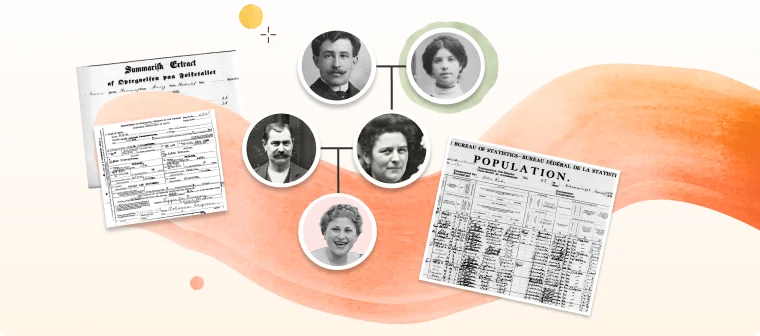
Explore historical records
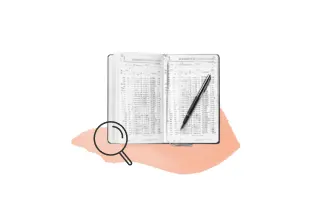
Explore 1,810,427,080 census and voter list records to get a detailed snapshot of your ancestors' lives. Discover names, ages, occupations, family relationships, residences, and much more.

Explore 4,647,704,406 birth, marriage, and death records. Uncover valuable details about major family milestones and find names, dates, places, occupations, and residences of your ancestors and relatives.

Search 266,544,192 military records and discover the stories of courage and resilience in your family history. Military records include enlistment dates, ranks, locations, and even physical descriptions.
Embark on a fascinating journey to discover your family history
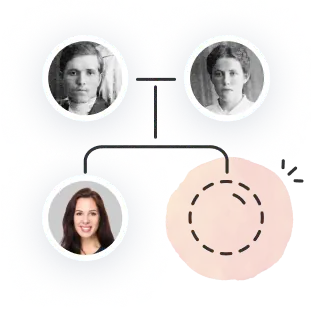
Start by adding a few names. Myheritage's automatic matching technology will help you expand your family tree and delight you with new discoveries.

Reveal your ethnic origins and find relatives you never knew existed with our simple DNA kit.
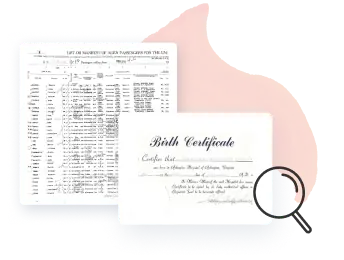
Dive into MyHeritage's international collection of 36.7 billion historical records - start with a name of an ancestor and see what our collections can reveal about your family history.
About MyHeritage

MyHeritage is the leading global platform for family history. It enriches the lives of people worldwide by enabling them to uncover more about themselves and where they belong. With a suite of intuitive products, billions of historical records, an affordable at-home DNA test, and AI-powered photo tools, MyHeritage creates a meaningful discovery experience that is deeply rewarding. The MyHeritage platform is enjoyed by tens of millions of people around the world who treasure and celebrate their heritage.



